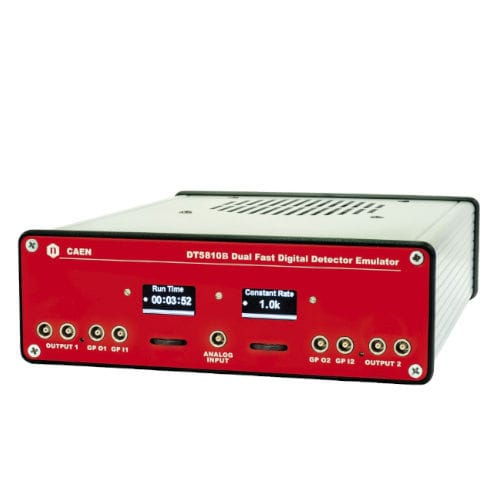
Characteristics
- Type
- function, pulse
Description
The CAEN Mod.DT5810B is the model of the Detector Emulator family with the fastest signal output. Thanks to an updated and faster DAC it is now possible to emulate the behaviour of some of the fastest detectors on the market with 1 ns rise time. The Digital Detector Emulator is the only synthesizer of random pulses that is also an emulator of radiation detector signals with the possibility to configure energy and time distribution.
The stream of emulated signals becomes a statistical sequence of pulses, reflecting the programmed input features. When the emulation process is resetted, the kernels of generators can be either re-initialized with new random data making the sequence always different, or they can be stored to reproduce the same sequence many times.
Each Digital Detector Emulator channel is able to emulate a radiation source and to provide it either with fully independent parameters (energy spectra, signal shapes, temporal distributions of the events, noise characteristics, etc.) or with some of them correlated with those of the other channel. For example the events can be time-correlated (steps of 1 ns), or a subset of events can share the same energy spectrum. It is also possible to set the channels in a master/slave configuration, where the first channel works as a trigger for the second one.
The output amplitude is selectable at ±2 V with 50 Ω or ±8 V at high impedance. The unit can operate in the same three modes as the 5800 Family (Pulser Mode, Emulation Mode and Waveform Generator Mode). In addition the minimum programmable delay is 1 ns/step.
